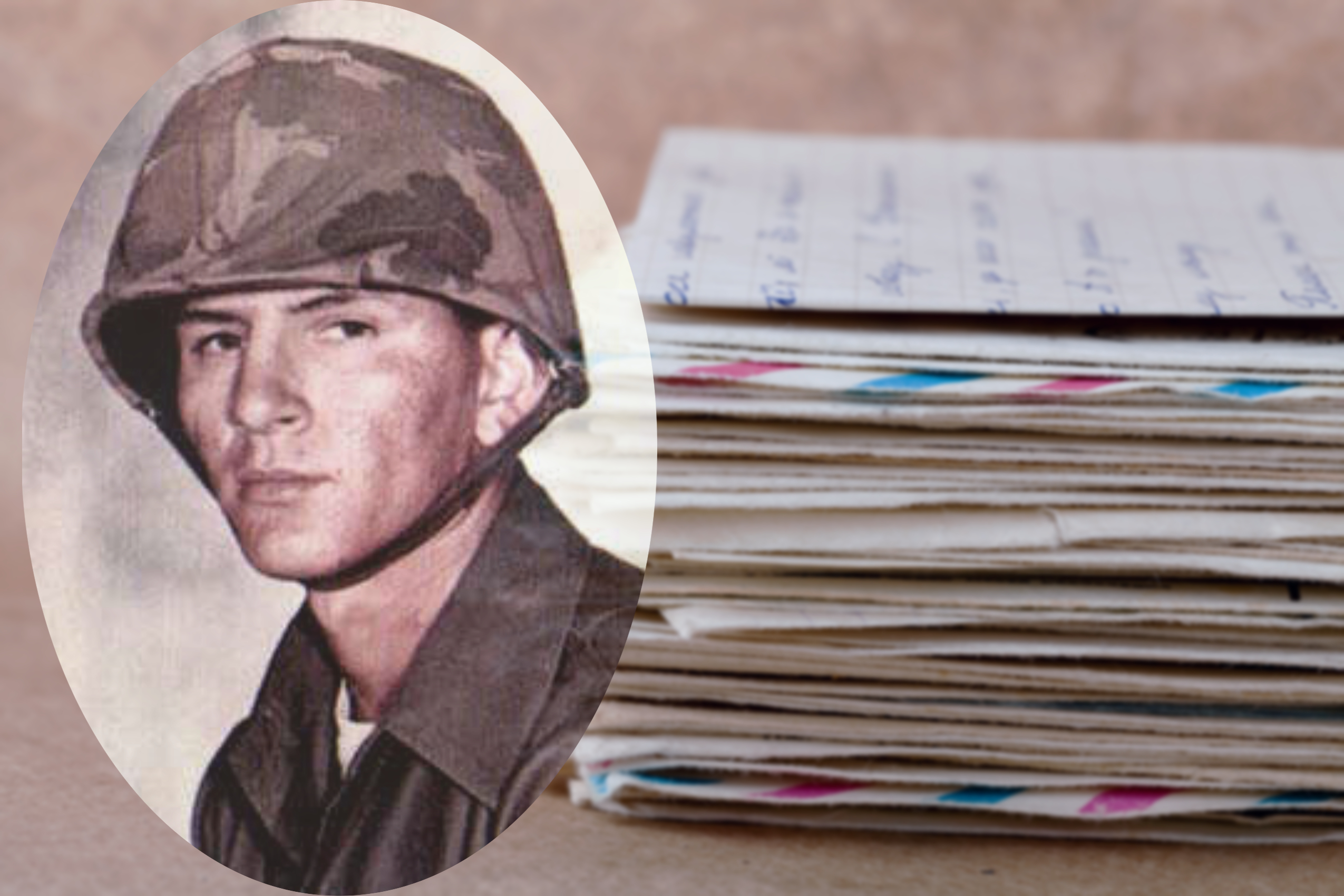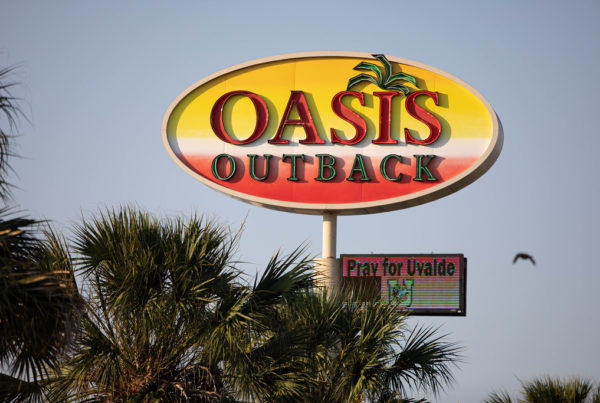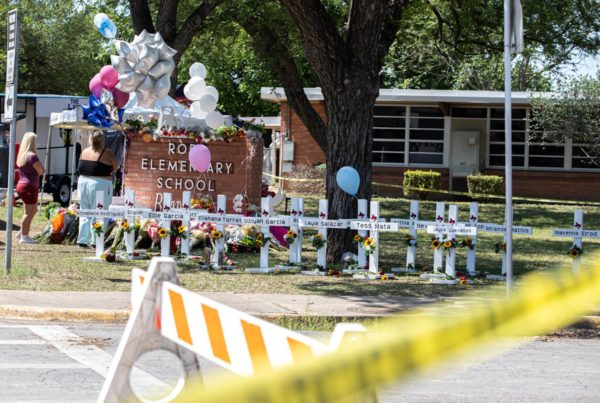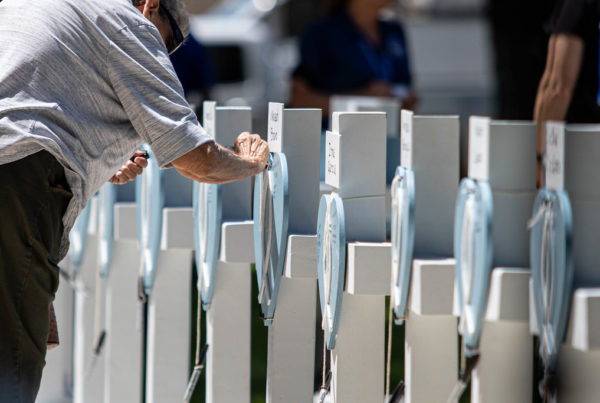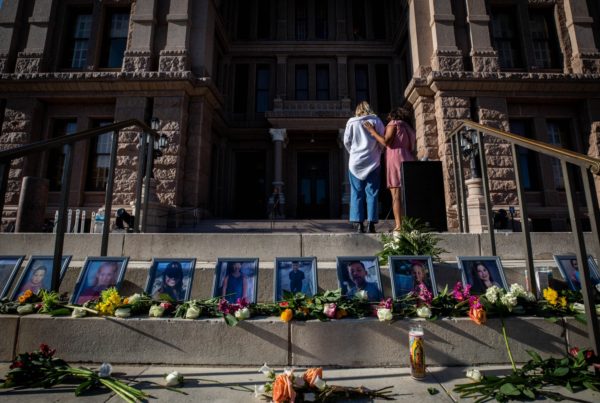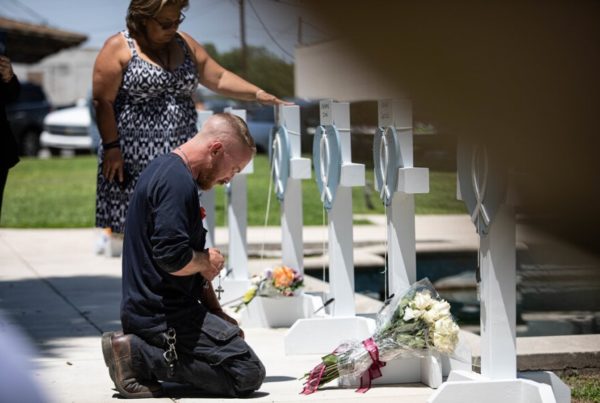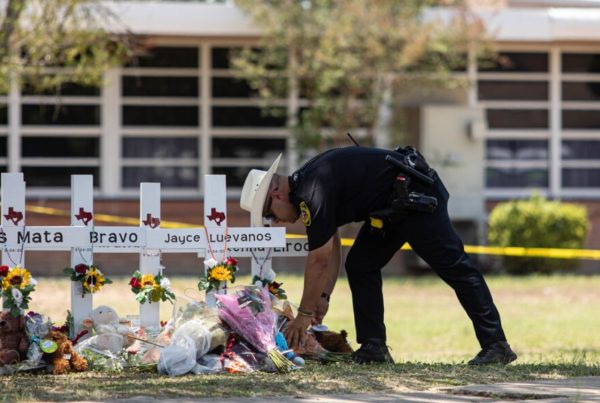This story was reported in collaborated with the Voces Oral History Center based at UT-Austin’s Moody College of Communication.
Ninety-two-year-old Dolia Gonzalez still holds onto a 1967 letter written by her son where he says, “don’t forget me down there in Edinburg.”
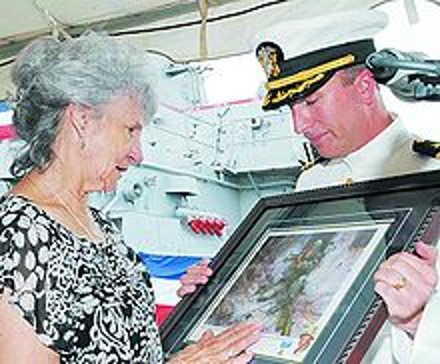
Dolia Gonzalez receiving a painting of her son, Freddy Gonzalez, from Commander Brian Fort during a change of command ceremony for the USS Gonzalez in 2009.
It’s just one of the many letters Alfredo “Freddy” Cantu Gonzalez wrote to his mother while serving two combat tours in Vietnam.
“I would save it, every time I got a letter, and I had that box by there I would drop them,” Gonzalez said.
Two years ago, Gonzalez donated more than 150 letters Freddy wrote between 1965 and 1968 to the Museum of South Texas History in Edinburg.
The museum displays a selection of those letters along with Gonzalez’s medals and uniform.
“There was something about Freddy, something about Freddy and letter writing that was extraordinary,” museum CEO Francisco Guajardo said.
Freddy’s record
Freddy Gonzalez was born in Edinburg on May 23, 1946. He was Dolia Gonzalez’s only child. And she was a single parent.
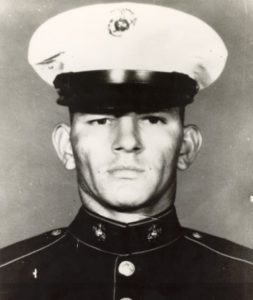
In 1965, Gonzalez graduated from Edinburg High School, where he also played football. After graduating, he joined the armed forces. His mother says Freddy had a mind of his own.
“Like when he graduated he says, ‘Mom, I’m joining the Marine Corps.’ I said, ‘No.’ He said, ‘Yes.’ I said, ‘You can go to college and keep on working.’ ‘No,’ he says, ‘I’ll come and go to college.’ Well, he didn’t come back, but his spirit is still with me,” Gonzalez said.
During Gonzalez’s second tour in Vietnam, he was promoted to sergeant and served as a platoon commander. In January 1968, as his platoon traveled in a convoy through central Vietnam, they came under attack. Gonzalez was wounded, but he still sprinted through heavy fire to rescue another fallen Marine. Gonzalez refused medical treatment, continued fighting and was wounded repeatedly. Four days later, Gonzalez died in Hue City while holding back the enemy.
In 1969, Freddy Gonzalez was the only person from the Battle of Hue City to receive the Medal of Honor. But there are other honors, too. An elementary school and a street in his hometown are named after him. The H-E-B Freddy Gonzalez store in Edinburg also displays two murals commemorating him. And the Navy destroyer USS Gonzalez is the first ship named for a Hispanic serviceman.
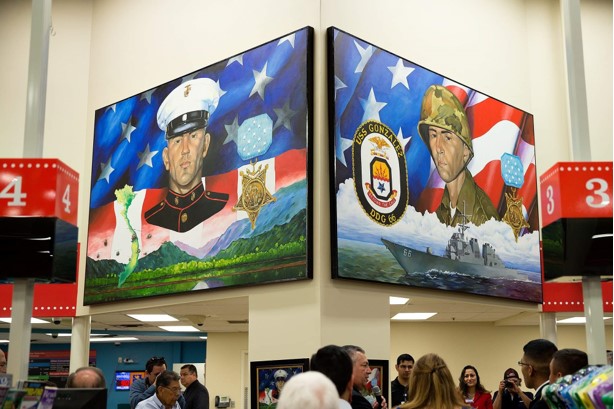
Two murals commemorating Alfredo “Freddy” Cantu Gonzalez, painted by UTRGV graduate art student Ramiro Peña. The murals are located at the H-E-B Freddy Gonzalez store in Edinburg.
Because of all of this, Freddy Gonzalez’s story is remembered in South Texas as an example of loyalty, honor and sacrifice.
“Freddy continues to live with us today through his letters and through his mother and through just his heroism,” Guajardo said.
Freddy’s growing legacy
Guajardo said the donation of Freddy Gonzalez’s letters has added to his legacy. The museum has offered workshops on the letters to teachers from Edinburg and Brownsville. He gave the example of a comment he heard from a teacher who actually works at the school named after Freddy:
“She said, ‘We mostly know about Freddy Gonzalez as this hero who gave his life for his country. I had no idea about that side of Freddy. His tenderness, the care and the love, the humanity.’ She said, ‘Because of the letters, now I have a more complete picture of Freddy Gonzalez.’”
Freddy Gonzalez’s mother says his letters reflect that he was a loyal son and friend.
“He wrote to my sisters, to my mom, and to his friends, his girlfriend; he wrote letters like I don’t know what,” Gonzalez said.
“One teacher said, ‘I need copies of these letters to show to my elementary students, because Freddy Gonzalez is a model for how a child should be with their parents,’” Guajardo said.
Dolia Gonzalez was 38 years old when her son died. Today, she continues finding ways to keep her son’s memory alive.


